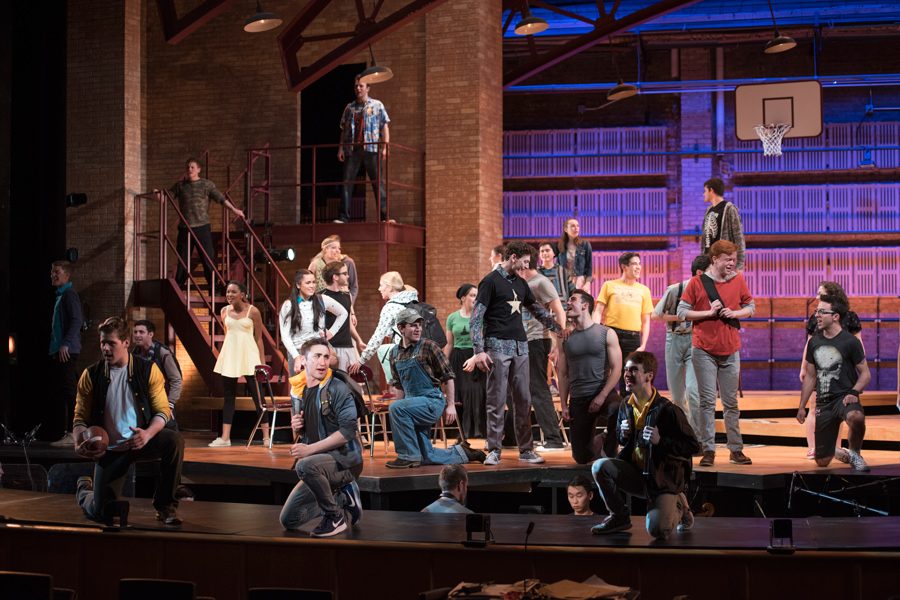New musical theater class signals change to Waa-Mu writing process
Daily file photo by Alex Castro
Students perform at the 86th Waa-Mu Show, “Beyond Belief: A Superhero Story.” The Waa-Mu Show is restructuring its creative process, adding a Fall Quarter writing class.
October 18, 2017
During one of her first few weeks at Northwestern, Melissa Lewyn saw a purple flier advertising a new student-run musical theater writing class.
Taught by the two head writers of the Waa-Mu Show, “Introduction to Musical Theater Writing” is a newly created elective, which immerses students in musical theater script fundamentals. The course prepares underclassmen to contribute to Waa-Mu, the largest student-written musical in the country.
Bienen junior Alexander Rothfield, one of the head co-writers for the 2018 Waa-Mu Show and a teacher for the new fall course, said the class gives students the skills to develop their writing so they can confidently apply to write for the show in the winter.
Lewyn said the class –– her first real venture into musical theater writing –– strengthened her skills in a way she never expected.
“Musical theater writing is a delicate art,” the Communication freshman said. “(It) has a new structure that is not easy to obtain, and I’m so grateful for this class.”
The class features guest lectures from renowned entertainment industry figures, Lewyn said. So far, speakers have included composers Adam Gwon and Craig Carnelia, as well as playwrights Cheryl Coons and Michele Lowe.
The course’s assignments range from rewriting songs to grouping theatrical numbers across different genres, Lewyn said. In addition to receiving feedback from the student teachers, the class also devotes time to group discussion, she said.
Bienen sophomore Mason Frasher said he is auditing the class because he is interested in writing for Waa-Mu. He said he enjoys that the class gives students freedom to formulate their writing.
“It very closely mirrors the process of writing a musical,” Frasher said. “There is a general idea of the goals and certain methods that you use to get there, but each piece is unique.”
In previous years, the show’s head writers organized what they called “Writer’s Room,” which were informal meetings throughout Fall Quarter to get feedback on material, Rothfield said. To achieve a more official process, he said he wanted to get more students involved and reach out to the freshman community.
Changes to the structure of the 6-year-old Waa-Mu winter class are happening as well.
Jordan Knitzer, the other Waa-Mu head co-writer, said there will be a new application process for students to perform a scene or a song they’ve written themselves. About 30 to 40 writers will collaborate on the show in the winter course, as opposed to about 75 in previous years, he said.
It was not productive to have so many writers in a room trying to make their voices heard, the Communication sophomore said.
Knitzer, who also teaches the fall class, added that he is confident he will team up with a lot of the students from the course in the winter to write the final version of Waa-Mu, which will be performed Spring Quarter.
“I’m seeing a lot of myself from last year in (the students’) eyes and how passionate they are about writing musical theater,” Knitzer said. “It’s really great to see people so invested. I can’t wait to actually work and collaborate with these writers, because they’re really smart.”



